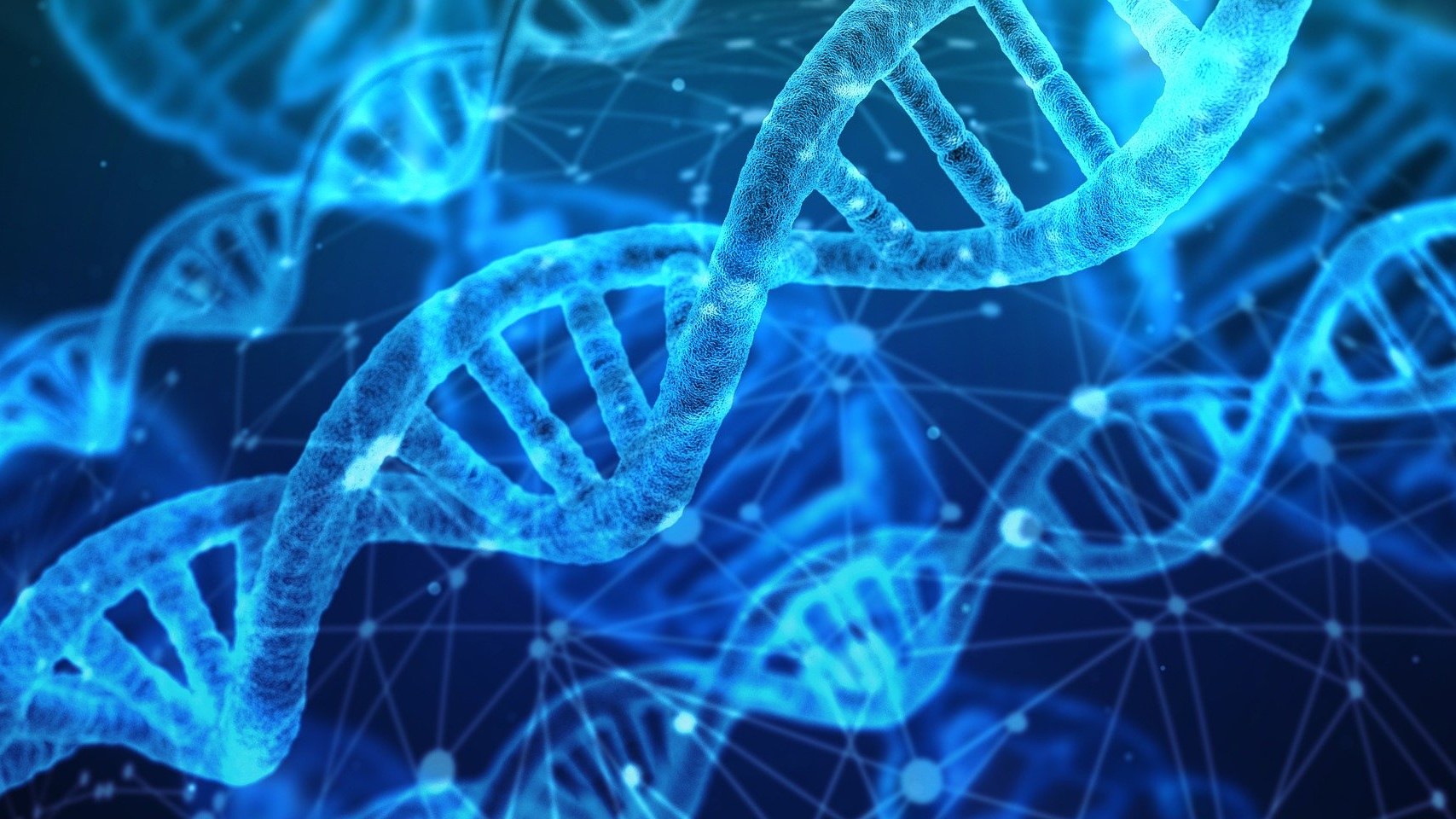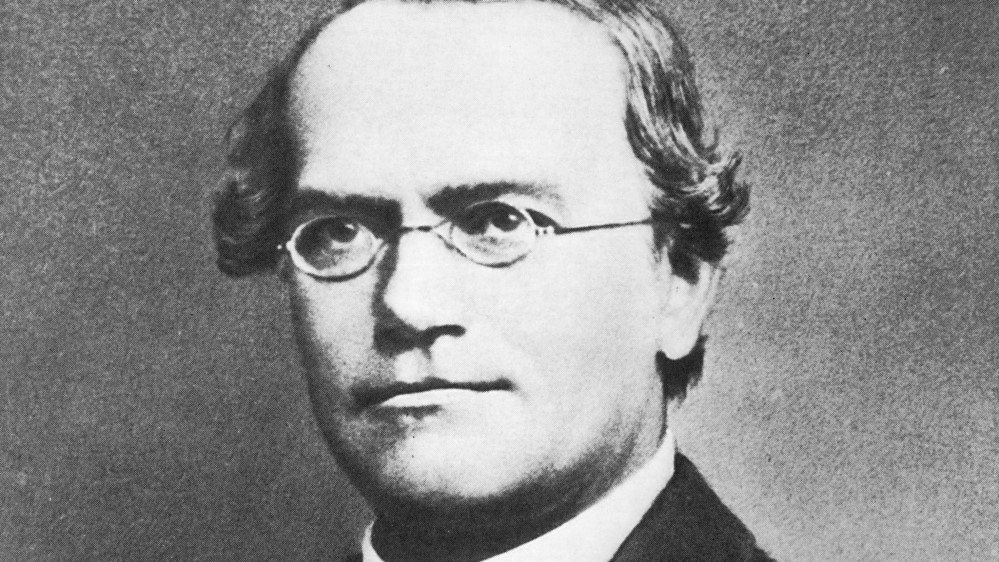

How the science of genetics was born in a Catholic monastery
Kristina Glicksman
Saturday, June 26, 2021

Image by Gerd Altmann from Pixabay
Gregor Mendel is a name that is probably familiar to most people, even if only as a distant echo from our school days. It’s a name that conjures up terms like allele and hybrid and dominant/recessive, as well as images of squares filled with AA, Aa, and aa.
It is probably not a name that conjures up for most people words like faith or religion.
With his methodical ways of exploring how physical traits are passed from one generation to the next, Gregor Mendel revolutionized the natural sciences and founded the branch we now call genetics. Only he never lived to see it.
But it is important that we remember Gregor Mendel not only as the “father of genetics” but also as a Catholic priest and an Augustinian friar.
Who was Gregor Mendel?
Johann Mendel was born in 1822 to German peasants living in Moravia, then part of the Austrian Empire and now part of the Czech Republic. He was a clever boy, and his parents made sure he received the best education their limited financial means could provide.
In 1843, he entered the Augustinian monastery in Brno and took the name Gregor. He became a highly valued science teacher and an enthusiastic member of the local scientific community, studying and conducting experiments in physics, biology, astronomy, and meteorology. He was also a well-liked priest and member of the monastery.
In 1868, Mendel was elected abbot of his monastery. Because of the duties that came with the position, including mingling in the tumultuous politics of the day, he had to give up his scientific pursuits.
He died in 1884 from a disease of the kidneys.
The father of genetics
Between 1854 and 1863, Mendel conducted his famous experiments with peas which have earned him the title “father of genetics”. He planted a large plot in the monastery’s garden, carefully cross-pollinated the peas by hand, and observed the results.
He was trying to answer a simple question: How are physical traits passed on from one generation to the next?
Of course people knew that children inherited traits from their parents. Experiments in cross-breeding plants and animals were all the rage in Mendel’s day, as scientists and farmers alike sought to improve the quality and quantity of yields. But because they didn’t understand how inheritance worked, they couldn’t predict what would happen.
Even Charles Darwin, who also caused a revolution in science with his understanding of how inherited traits are important for the survival of species and the creation of new ones, had no idea how these traits were actually inherited.
Mendel had two advantages that many of his colleagues lacked: he had a background in physics and he belonged to a monastery.
His knowledge of physics was important because it influenced him to approach the question in a more systematic and methodological way than previous scientists had done. If there are universal laws of physics and chemistry in the world that God created, why shouldn’t there also be laws governing biology?
The monastery, too, played an important part in Mendel’s ability to conduct his experiments because it gave him the large garden he needed. Also for Mendel personally, the monastery gave him the freedom to pursue his scientific endeavours in search of the truth without having to worry about his career or finances.
The discoveries Mendel made with his pea plants led him to an understanding of how physical traits are passed down from parents to children, before the discovery of chromosomes and long before the discovery of DNA but even before scientists understood what happens during the process of fertilization.
Unfortunately, although Mendel himself could see the revolutionary significance of his experiments, he had trouble convincing others. They just couldn’t see that the results and Mendel’s mathematical analysis of them not only revealed the laws by which traits are inherited but also suggested the as-yet-invisible means by which they are passed on. But luckily for us and for the progress of science, the truly groundbreaking significance of his work finally came to light at the turn of the twentieth century, and from that was born an entirely new field of science which we know of today as genetics.
Mendel the Catholic scientist
But Gregor Mendel was more than just a scientist. He was also a Catholic priest and an Augustinian friar. Although we don’t know a whole lot about how Mendel perceived the intersection of his faith and his passion for science, we can clearly see that for him there was no conflict between the two.
And in fact he wasn’t alone. Mendel’s monastery was a place of vibrant intellectual activity and scientific research.
We live in a world where many people believe that religion and science are incompatible, and they proclaim it so loudly that even for those of us who know such an idea is nonsense, it can be hard to imagine a world where monks and friars do important scientific work and lay scientists are not at all surprised by the fact.
And so we might be tempted to emphasize either Gregor the priest or Gregor the scientist. We picture him either as an old monk pottering around the garden and stumbling across the laws of inheritance by chance or as a scientist who joined a monastery out of necessity but wasn’t too preoccupied with religion.
But neither is true.
Mendel was a priest and a member of a religious community who prayed, celebrated Mass, and gave homilies. He was well known and liked for his kindness, compassion, and humility. And he was also a talented, well-trained scientist who conducted well-planned experiments, was actively involved in his local scientific community, and had friendships and fruitful professional relationships with other leading scientists of his day.
As Catholics, we should never be afraid of science. We should embrace it. Because science is about searching for the truth, the truth about the universe that God has created and through which we can learn more about Him.
As Pope Benedict XVI said in his 2010 address to the Pontifical Academy of Sciences:

Scientists do not create the world; they learn about it and attempt to imitate it, following the laws and intelligibility that nature manifests to us. The scientist’s experience as a human being is therefore that of perceiving a constant, a law, a logos that he has not created but that he has instead observed: in fact, it leads us to admit the existence of an all-powerful Reason, which is other than that of man, and which sustains the world. This is the meeting point between the natural sciences and religion. As a result, science becomes a place of dialogue, a meeting between man and nature and, potentially, even between man and his Creator.
Want to learn more about Gregor Mendel and his influence on modern science?
Watch Mendel: The Father of Genetics airing Sunday, June 27 at 9 pm ET / 6 pm PT on Salt + Light TV.

Gregor Mendel was an Augustinian friar whose experiments with peas laid the basis for the modern science of genetics (Source: Wikimedia Commons)
Related Articles:
<<













